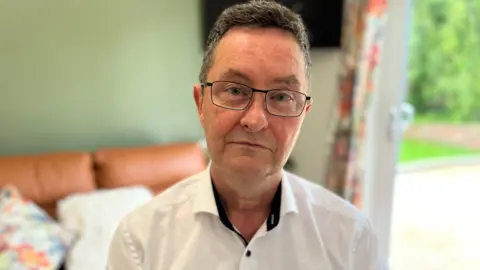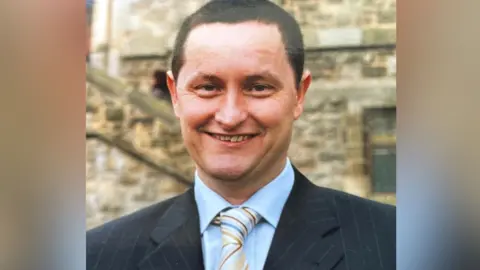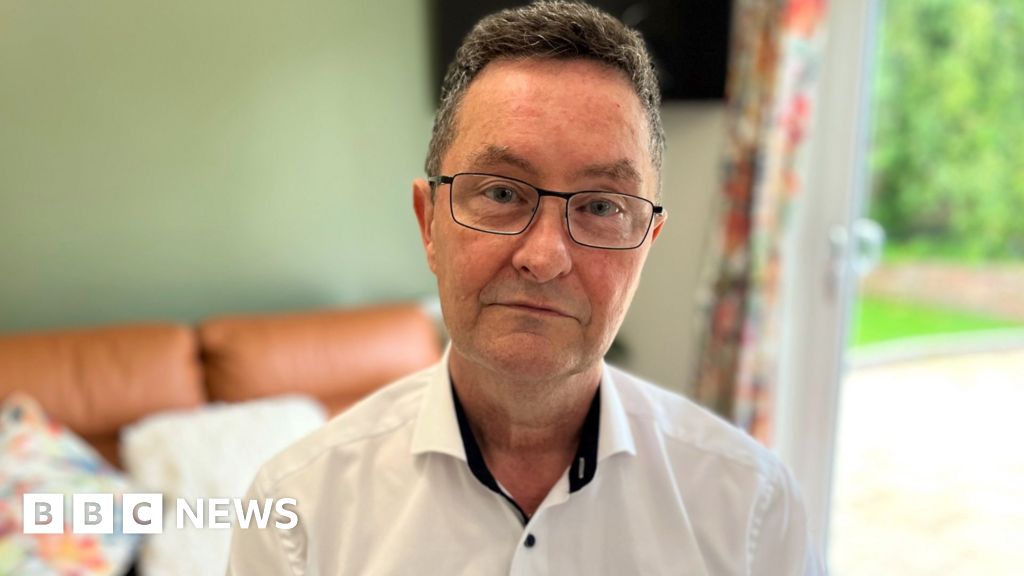

“I had to pull over and call the emergency services, I thought I was having a heart attack.”
John Kelly was driving to Dublin for work when he felt a tightness in his chest and tingling in his arms.
He called an ambulance and spent the next three days in hospital undergoing extensive tests, all of which came back clean.
“I went to the doctor and he said there was nothing wrong with my heart,” he said.
“When I asked him what the problem was, he pointed to my head.”


John experienced a severe panic attack.
The Dungannon-born businessman previously held a senior role with a soft drinks company and has spent most of his career in the corporate world.
In the early 2000s, he started his own sales training business, but soon after began experiencing anxiety symptoms.
“I was self-employed for a few years and I thought I was doing well, I had a lovely home and a loving family, but I think the pressures of work were just getting more and more intense.
“Some days I just had this brain fog and I didn’t know what it was, but I was still able to function.”
A few days later, John had his first panic attack.
Treatment
John was eventually recommended by his GP to undergo cognitive behavioural therapy (CBT).
It’s an NHS-approved talking therapy that helps you manage problems by changing the way you think and behave.
John called this the beginning of recovery.
“I like to use the analogy of being on a leaky boat and being given the right tools.
“This wonderful bucket helps get some of the water out of the boat, but the boat still leaks.”
John waited several months before booking his first CBT appointment through the NHS and then had his first six sessions.
He then paid for further sessions through the private sector.
John said CBT is the starting point of a longer journey that includes coaching, training and self-reflection.
“I was able to reframe my thoughts and not think about things in a pessimistic way and understand that they are just thoughts and you don’t have to act on them, but it also took a lot of self-reflection and work on myself.
“It really got me thinking: If this happened to me, it must be happening to other people.”


More than 20 years on, issues with waiting lists and access to talking therapies remain.
In Northern Ireland, it is recommended that mental health support and treatment be provided within nine weeks.
But a study published in June by the Northern Ireland Mental Health Agency found that this target was not being met in many cases.
Data from the Northern Ireland Living and Times Survey shows that 47% of people who sought services before October 2021 did not receive effective treatment within nine weeks.
The Department of Health acknowledged that health trusts are experiencing “significant pressures” which are resulting in increased demand for services.
The spokesman added that the mental health strategy was working to reduce waiting lists and support people in times of crisis.
“Many people suffer in silence”
Professor Siobhan O’Neill is Northern Ireland’s mental health champion.
She said psychological therapies are known to be “highly effective” but the waiting lists are too long.
Prof O’Neill said this was resulting in worsening mental health problems, with many people “suffering in silence”.
“It’s really important to see men coming forward and talking publicly about how they’ve recovered and what’s worked for them,” she said.
After years of working on his own mental and physical health, John Kelly now coaches companies on how to bring about positive cultural change in their organizations.


This week he is due to speak to an audience in Belfast about his experiences.
The line-up also includes Northern Irish rock musician and frontman of The Answer and the Unholy Gospel, Cormac Neeson.
John Kelly said: “I think being at this event shows how much progress we can make, but there is still a stigma surrounding mental health.”
“I just want to share my story because I think it can help others. I’m living proof that no matter how depressed or anxious you feel, things do get better.”
- If you are affected by any of the issues discussed in this article, BBC Action Line.


